Aminess Hotels and Korčula Mayor Condemn Incident of Homophobia
ZAGREB, 14 August, 2021 - The Aminess Hotels and Campsites company and Korčula Mayor Nika Silić Maroević on Friday strongly condemned the incident of homophobia that occurred last weekend near the town of Korčula.
"We express our sympathy to the victims, hoping that such incident will not happen again. We distance ourselves from any form of violence and discrimination and find such behaviour unacceptable," the Aminess Hotels and Campsites company said in a press release after an incident in which a group of LGBTIQ friends from several foreign countries were made to leave the Lost in the Renaissance festival.
The company stresses that Aminess Hotels and Campsites are in no way related to the programme or organisation of the festival. Aminess merely provided accommodation for the performers at the festival. Therefore, Aminess is in no way linked to the incident that occurred, and it strongly condemns it.
Korčula Mayor Nika Silić Maroević also condemned the insulting of the foreign guests, and expressed her sincere regret over the incident.
"The City of Korčula strongly condemns the incident that occurred during the Lost in Renaissance festival at The Boogie Jungle Korčula Club," the mayor wrote in a response to the developments concerning the seven foreign guests that were made to leave the festival.
She also said that the City would resolutely oppose all forms of violence and hate speech, as well as racial, religious and sexual discrimination, in the fight for equality, human dignity and the safety of all its citizens and tourists.
The mayor also stressed that the City of Korčula was not responsible for the events in the club, expressing hope that such incidents will not happen again.
Earlier on Friday, Zagreb Pride, the NGO that promotes the rights of LGBTIQ persons, reported on the incident, citing the victims' report. They claim that security guards forcibly separated them, poured water on them and then drove them out of the venue, pushing them.
The victims reported this case of homophobia to Zagreb Pride, the organisers of the Lost in the Renaissance festival, the management of the Aminess Hotels, as well as the City of Korčula since the festival receives support from the city budget as a cultural event and is sponsored by the local tourist board.
For more on lifestyle, follow TCN's dedicated page.
For more about Croatia, CLICK HERE.
Zagreb Pride Reports Homophobic Incidents on Korčula Island
ZAGREB, 13 Aug 2021 - A group of queer friends from several countries were thrown out of the Lost in the Renaissance festival on the southern Adriatic island of Korčula last weekend in an incident motivated by homophobia, Zagreb Pride reported on Friday.
According to Zageb Pride, at the end of the first day of the festival, held in The Jungle Club, outside Korčula town, one of the bouncers separated by force two young men who were dancing holding each other. The bouncer ordered: "No kissing, just dancing!"
Shortly after that, another bouncer poured a bottle of water onto another two young men who were napping on a bench in each other's arms. In the end, the bouncers kicked the young men out, Zagreb Pride said.
The homophobic incidents were reported to Zagreb Pride, the organisers of the Lost in the Renaissance festival, the Aminess Hotel management and the Korčula town authorities.
Zagreb Pride said nobody reacted to the reported incidents.
Zagreb Pride also recalled another incident that took place in June in Zagreb where two Spanish women, during their business stay in Croatia's capital, suffered lesbophobic insults from Zagreb residents.
For more news, CLICK HERE.
PM Andrej Plenković Strongly condemns violence after LGTBIQ Pride Parade
ZAGREB, 7 July, 2021 - Prime Minister Andrej Plenković on Wednesday strongly condemned the violence that had occurred after the LGTBIQ Pride Parade in Zagreb on Saturday.
"That is unacceptable, Croatia is a free country and everyone should be what they are. Human rights and the rights of all minorities, including sexual minorities, should be respected," Plenković said in an interview with Croatian Radio.
"Croatia is big enough for everyone to be free," he stressed.
Plenković recalled that Deputy Prime Minister for Social Affairs and Human Rights Boris Milošević had also condemned the physical assaults on members of the LGBTIQ community, noting that what Milošević wrote in his Facebook post was on behalf of the whole cabinet.
"I totally agree with him. I think that violence and inciting to violence is unacceptable. And now (Bridge MPs) Petrov and Grmoja are crying because they have received threats, they were obviously perceived as some kind of inciters. I receive such threats on a daily and weekly basis and I don't speak about it with anyone. One learns to cope with it, while they are now crying about it," the PM said.
"The worst actors on the scene are those who are exclusive, and I want us to build an inclusive society in which everyone will advocate and stand behind their values and in which everyone will be able to ensure an education for their children based on the values that they have and share. Things should not be imposed on anyone. If someone is different, respect them, they also have their freedom and their choices. We must build a society that is inclusive, that's the most important thing, and I don't see why it should be any different," he added.
He said that people in Croatia needed a little encouragement to get vaccinated against COVID-19, while certain actors in society needed encouragement to be more tolerant. "That will come about, I am optimistic."
Milanović's double standards
Plenković also talked about the environmental devastation of Vruja Cove on the southern Dalmatian coast and Sunday's protest rally ironically called the Illegal Construction and Nature Devastation Festival, where protesters called out Stipe Latković, a businessman from Split and a friend and donor of President Milanović.
Asked why the government was not acting, given that the property in case is state-owned, Plenković said that the relevant inspectorate had issued a number of decisions, "which obviously were not complied with", and imposed fines,
"Those decisions were made not just this year but for many years, and now these campaigners for (an independent) judiciary, who are accusing the judiciary, as Milanović is, of being under the control of the (ruling) HDZ, are protecting these illegal builders. This is a fantastic example of double standards," Plenković said.
He said that this was not the only "brilliant" example of double standards, citing the cases of Constitutional Court judge Andrej Abramović, who used a garden hose to pour water on his neighbours, SDP MP Marina Opačak Bilić, who is suspected of economic crime, and Sisak mayor Kristina Ikić Baniček who failed to provide requested documents to USKOK anti-corruption investigators.
"All these are double standards of campaigners for an independent judiciary, and here I mean Milanović," the prime minister said.
Bačić's arrest not pleasant for either HRT or Parliament
Commenting on the arrest of the director-general of the HRT public broadcasting service, Kazimir Bačić, on suspicion of corruption, Plenković said that the judicial authorities were acting completely independently and impartially.
"I don't want to speculate about anyone's responsibility, but the situation is not pleasant either for the HRT or for the Croatian parliament which appointed Bačić," he said.
The parliamentary Media Committee is meeting today to discuss the proposal to relieve Bačić of his duties and appoint an acting director-general.
For more about politics in Croatia, follow TCN's dedicated page
Zagreb Gay Pride 2021 Analysis: Issues Still Exist, Pride Celebrates History and Present Equality
July 5, 2021 - Gay rights in Croatia still have challenges ahead, but even if all problems are resolved, Pride should remain a commemorative event. A look at the history of gay culture in Croatia and the current climate in this Zagreb Gay Pride 2021 Analysis by TCN reporter Ivor Kruljac.
Zagreb Pride is the oldest pride in Croatia. First held in 2002, it attracts more and more people every year, from LGBTQ members, straight people that support gay rights to NGOs, human rights activists, and even politicians from the left and liberal specter. Over the years, the event grew from a one-day pride to Pride month, full of educational and entertaining events regarding LGBTQ issues and a chance for people with the same preferences to meet and celebrate who they are.
Pride month is marked in June in honor of the 1969 Stonewall Uprising in Manhattan.
„The Stonewall Riots, also called the Stonewall Uprising, began in the early hours of June 28, 1969, when New York City police raided the Stonewall Inn, a gay club located in Greenwich Village in New York City. The raid sparked a riot among bar patrons and neighborhood residents as police roughly hauled employees and patrons out of the bar, leading to six days of protests and violent clashes with law enforcement outside the bar on Christopher Street, in neighboring streets, and in nearby Christopher Park. The Stonewall Riots served as a catalyst for the gay rights movement in the United States and around the world“, reminds History.com.
When it comes to LGBTQ in Croatia, as you can expect with the ideological divide Croatians generally experience, there are mixed feelings on the issue.
From street violence to a family event
Participating in the first Pride in 2002 required that if you are a man loving a man ready to openly admit it, you had to have balls.
The attacks by skinheads and other „morally concerned citizens were fierce and violent. Participants truly needed police protection which was provided but also needed to be careful to not get hit by the incoming rocks that were thrown among the participants.
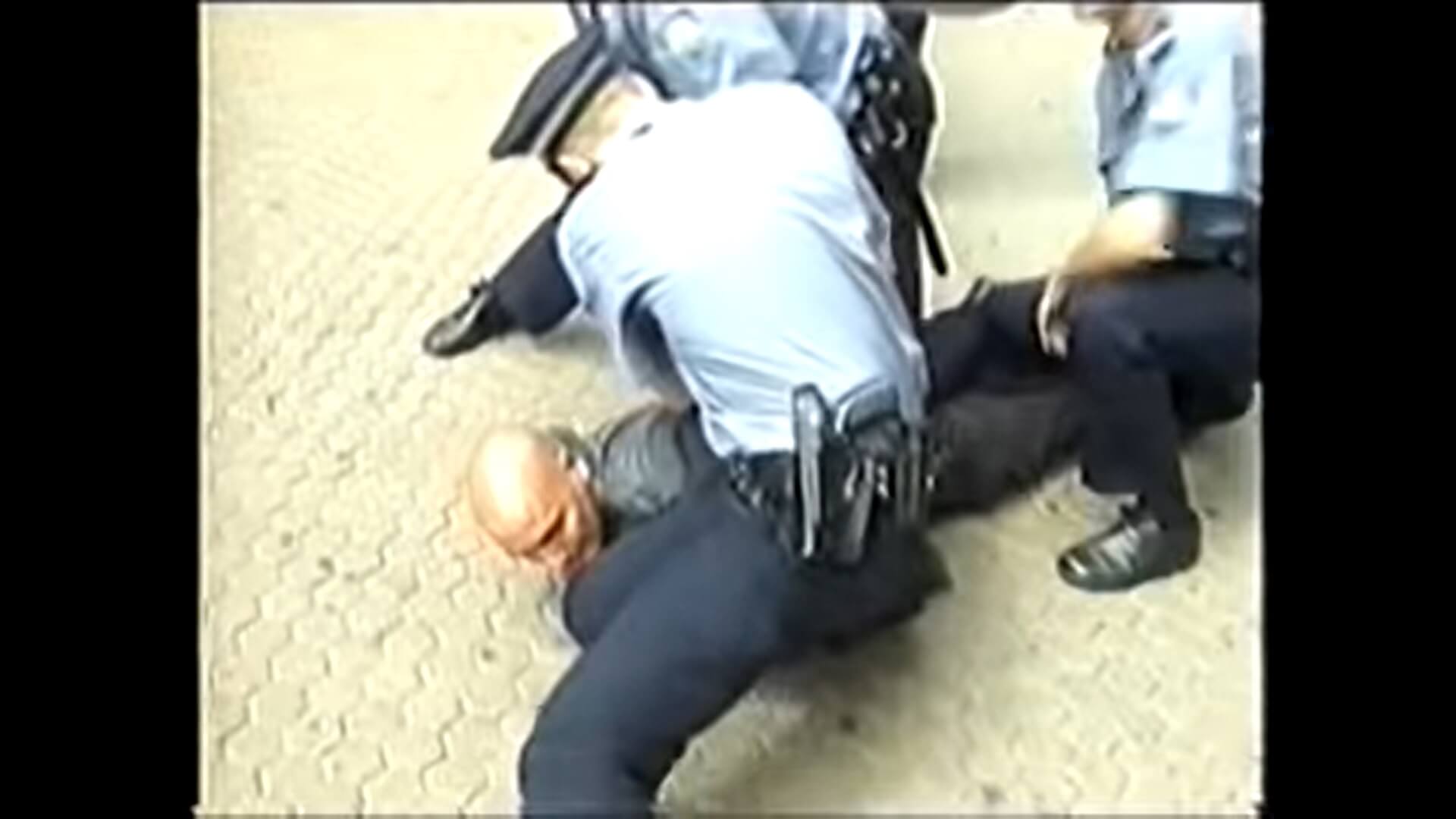
Police arresting violent skinhead at the first Zagreb Pride in 2002, screenshot / Zagreb pride
But, at least for Zagreb, the situation got better and more open. Today, pride is the forthcoming celebration of love and freedom, and entire families can be seen to join the picnic at Ribnjak park to teach their children tolerance and that people are not sick or different from others because of their sexual preference. Other larger cities in Croatia, such as Split, slowly but surely, do follow that path too, and Rijeka, the pinnacle of liberal Croatia, is also a very gay-friendly city.
Of course, a political counterstrike is expected and quite strong. The first most notable one was the 2013 referendum, where it was voted that the Croatian constitution declares marriage as a „community between a man and woman“. The goal was to deny LGBTQ couples the same rights as enjoyed by straight people.
However, the bill on life partnership outplayed that attempt.
In the meantime, LGBTQ couples can also adopt children in Croatia, as Constitutional Court concluded that gay couples fostering children is not against the Croatian Constitution.
That decision and along with the general openness of Croatia towards LGBTQ was followed by a controversial carnival in Imotski where an effigy of a gay couple was burned. President Zoran Milanović demanded an apology from the organizers, and SDP's MP Arsen Bauk filed charges against the organizers.
Counting pluses and minuses, the report on Croatia being the 39th best country for LGBTQ visitors still seems to uphold. No changes for the better, but at least Croatia is still in the top third for this category of tourists.
Haters strike back
2020 and 2021 sadly saw the uprise of violence towards LGBTQ in the Croatian capital. Apart from the occasional tearing down or burning of the rainbow flag, Croatia was shocked with an attempt of burning a man in Maksimir Forest Park as well, with his sexual preference being the sole motive for the attack.
On the other side, this year's pride felt to start stronger than ever. The newly elected mayor Tomislav Tomašević joined the parade, along with stating that Zagreb is a city that is open to everyone. This year arranged a bit differently to adhere to corona measures; around 2500 participated in the event.
„Twenty of our prides made our city and our republic a better, more democratic, and joyous place for the life of all citizens“, was the main message of the 20th edition of Zagreb Pride.
As reported by Index.hr, the Zagreb Pride association representatives stated that the Croatian LGBTIQ community „became a powerful, responsible and self-aware part of the country, but that the fight isn't over“.
„Our constitution and our laws still do not include in a complete and fair way. Our streets and squares are still not free of hate. We didn't forget nor we will forget victims of homophobic and fascist rampage in this year and all previous years“, stated Zagreb Pride.
Sadly, while Pride itself went without issues, participants of the pride who walked the streets of Zagreb after pride with rainbow flags faced a series of physical attacks on several locations in Zagreb.
A week ahead of Pride, conservative MOST Party parliament member Nikola Grmoja complained that commercials displayed during EURO 2020 commercials were LGBTQ propaganda and that kids need to be protected from it and announced that he might include it in his anti-pedophile package. Grmoja's statement caused strong disagreements among the Croatian public, with several people (including celebrities) teasing him that if he wants to start battling pedophilia, he should start from church (as Grmoja is quite clerical). Božo Petrov, president of the MOST party, added more fuel to the fire when he supported Grmoja, stating that „minorities can't dictate what my children can learn in school“. He added that minorities need to be aware that they are minorities and that „we tolerate that," sparking more enrage from the public, with many comparing MOST to the controversial Hungarian Prime Minister Viktor Orban.
Zagreb Pride linked the post-Pride physical attacks with Petrov and Grmoja's public statements, and Petrov and Grmoja announced they would sue Zagreb Pride for slender.
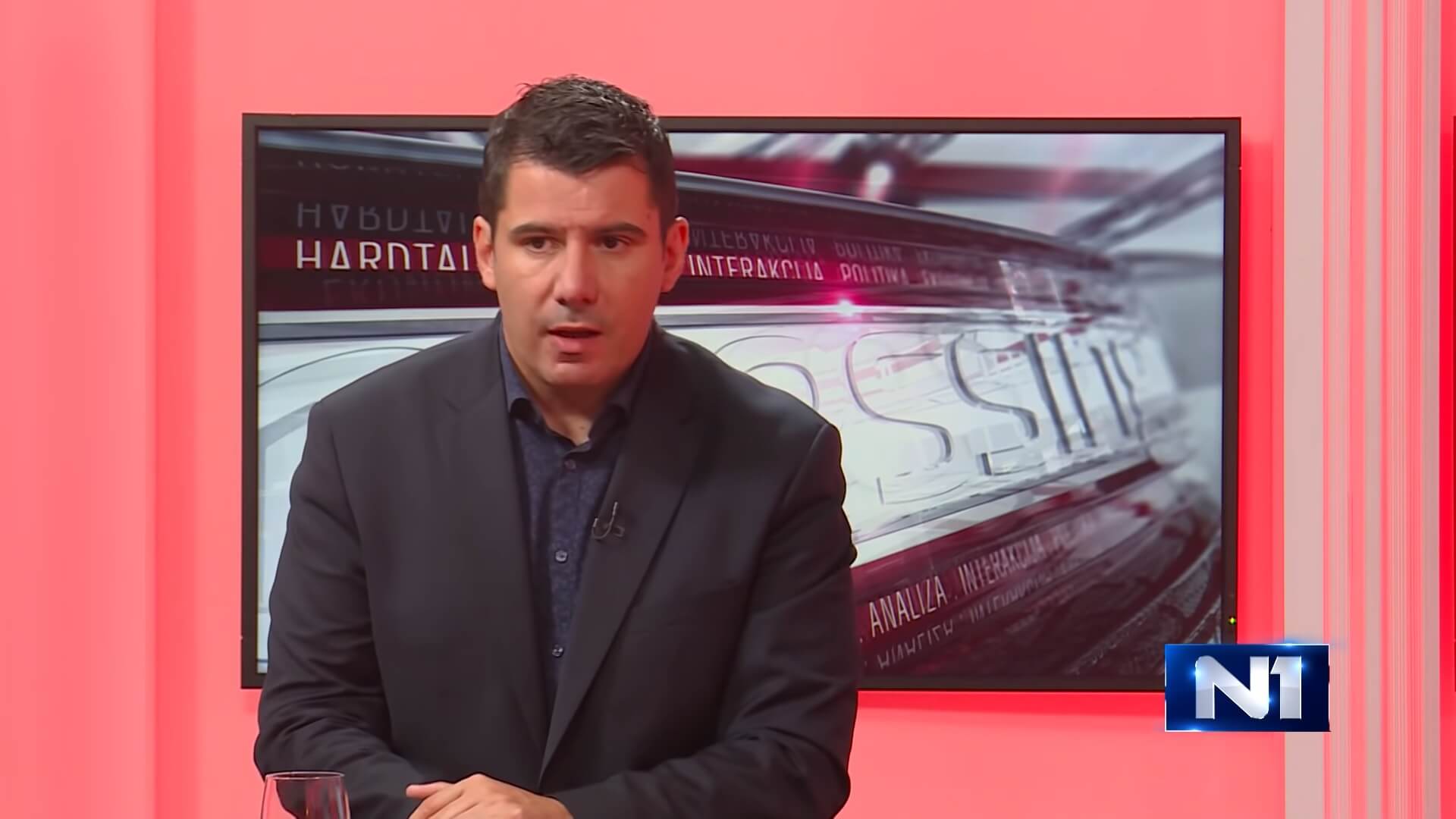
Nikola Grmoja, screenshot N1
The Law: "Gay is OK". Popular opinion: "Do it in your homes, not on the streets".
In this political escalation, what does the average Croatian think? Looking at the comments on social networks, it seems the majority of Croatians don't mind gays being gays and living how they like (even if they are not always happy with legal rights the LGBTQ community received). But, one sentiment in that „tolerance“ is particularly worrying.
„Live in your house however you want it. You don't have to wave around, like its a best thing ever“, said one of the online comments on Index.hr beneath the news on Petrov and Grmoja.
So it seems the public does not understand why Pride is important. First of all, as evident, the political climate is such that the battle for equality truly isn't over in Croatia, and Pride is the best way for the community to express what issues LGBTQ still face in Croatia. Additionally, pride month is also educational and supportive, and public presence show to other people who feel the same that they are not alone, as they might feel lonely and unable to find people who feel the same in everyday life.
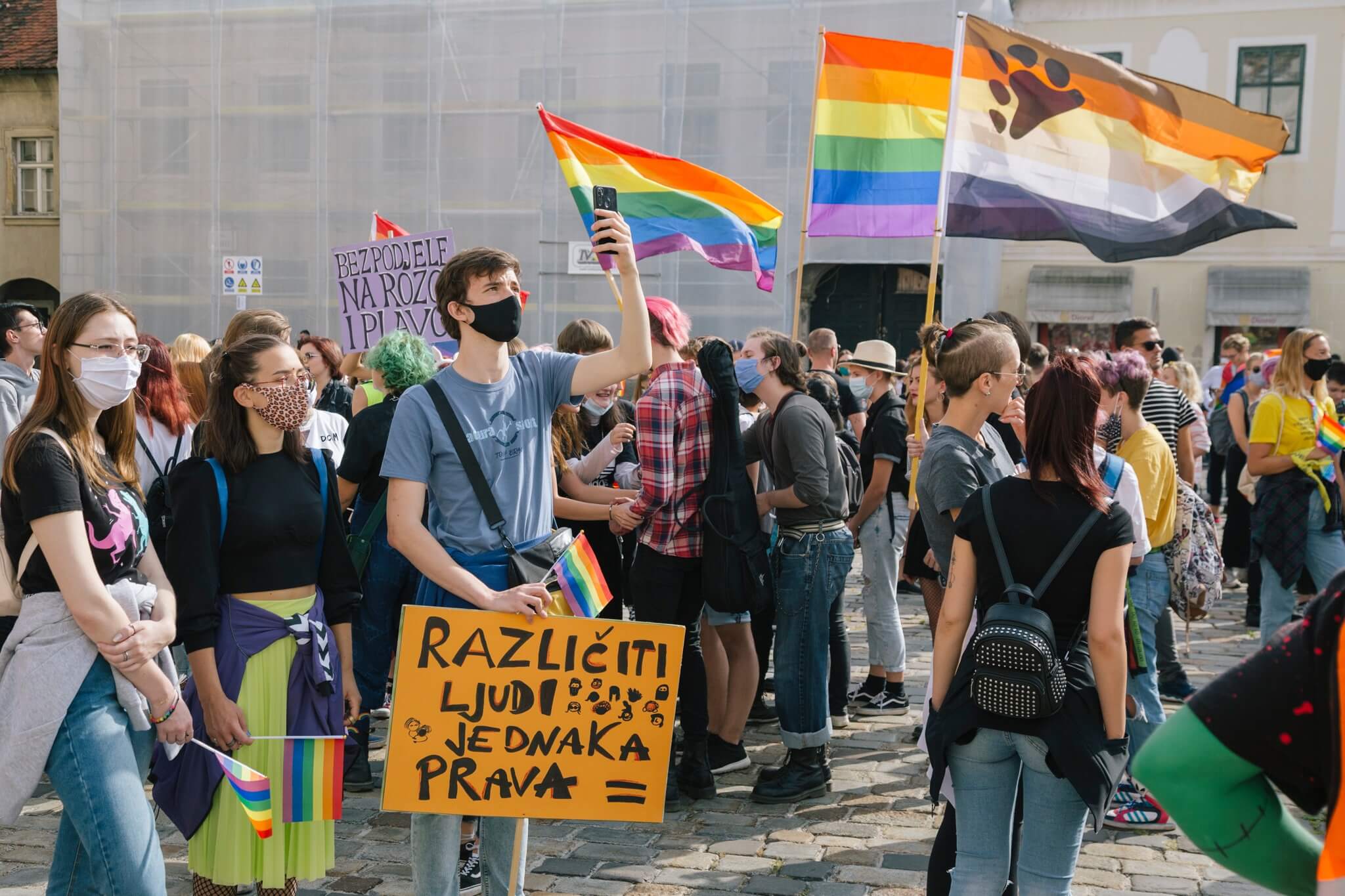
© Zagreb Pride
But, even if the law and constitution give the same rights and solves the problem of intolerance of LGBTQ people completely, does that mean that Pride should then be canceled? Well, Croatia won its independence and the war in the nineties. Does that mean we should stop commemorating the Homeland War? Or is it nice to honor and celebrate the victory and triumph over all obstacles Croatia had to face in its independence? Pride is a cultural, commemorative event honoring those who were or still are victims and oppressed for their sexual preference, either in Croatia or in the world. Croatia is a democratic country. Every group, national, ethnical, racial, religious, etc. should have the right to gather and honor its heroes. The right to gather and honor its tragedies and their dates and connect with other people who feel the same. If political elites are so concerned with keeping Croatians in Croatia, then they can't afford to discriminate or attack part of Croatian society solely based on their sexual preference. A preference that, unlike being violent or intolerable, can't be chosen.
Learn more about LGBT rights in Croatia and what LGBT tourists should know on our TC page.
For more about LGBT in Croatia, follow TCN's dedicated page.
Pride Ride Held in Zagreb
ZAGREB, 6 June, 2021 - An estimated 500 participants gathered for this year's Pride Ride that took place in downtown Zagreb on Saturday afternoon, and the ride was organised by an informal initiative of many individuals and organizations called "Proud Zagreb" - informal group LGBTIQ+".
This is the second annual edition of the pride ride, and the first pride ride was organised last year instead of a pride parade due to the COVID-19 pandemic.
The organisers of this year's event, aimed at raising awareness of the rights of LGBT members, said that the first pride ride had been held last year due to the strict anti-epidemic measures and consequences of the 22 March 2020 earthquake.
They said that they were sad to see that no progress had been made in providing better living conditions for residents of Zagreb, including members of the LGBT community.
Danijel Martinović, an activist of the Rainbow Families association, said that the aim of this year's pride ride was to increase the visibility of LGBT persons in the public sphere.
He also underscored that LGBTIQ+ members would not be intimidated by cowardly acts such as the burning of LGBTIQ+ flags and effigies and physical assaults on LGBTIQ+ members.
"We should show that we are here," Martinović said adding that some progress was made in enabling same sex couples to foster children but there was always room for further improvement.
He added that they also expressed concern at the government's decision to appeal the court's ruling that enabled same-sex couples to foster children.
One of bicycle riders in this year's ride was a politician and MP Sandra Benčić of the We Can party. Also the newly-elected deputy mayor Danijela Dolenec of the same party came to support the riders.
For more on lifestyle in Croatia, follow TCN's dedicated page.
For more about Croatia, CLICK HERE.
Ombudswoman: Significant Presence of Homophobia, Biphobia and Transphobia in Croatia
ZAGREB, 16 May 2021 - Gender Equality Ombudswoman Višnja Ljubičić said on Sunday that different manifestations of intolerance towards sexual and gender minorities registered in 2020 indicated a significant presence of homophobia, biphobia, and transphobia in the Croatian society.
On the occasion of the International Day against Homophobia, Transphobia and Biphobia, observed on 17 May with the aim of raising awareness of the need to fight discrimination and hatred against LGBTIQ persons, Ljubičić said that according to data from the Ministry of the Interior, seven criminal offences committed on grounds of sexual orientation were recorded in 2020. Those were mainly criminal offences of public incitement to violence and hatred and criminal offences of inflicting bodily harm.
Ljubičić also warned that a recently published study by the European Union Agency for Fundamental Rights entitled "A long way to go for LGBTI equality" showed that discrimination against sexual and gender minorities continued to be a pronounced social problem.
Also, according to the study results, 47% of respondents in Croatia almost never declare their same-sex orientation openly, and of the countries covered by the study, Croatia has the highest percentage of students who hide the fact that they belong to a sexual or gender minority (51%), Ljubičić said.
The International Day against Homophobia, Transphobia and Biphobia is observed on 17 May because on that day in 1990, homosexuality was removed from the International Classification of Diseases of the World Health Organization.
In Croatia, the day has been observed since 2011 by a decision of the Croatian Parliament as part of the National Gender Equality Policy.
For more news about lifestyle in Croatia, follow TCN's dedicated page.
Croatia Constitutional Court: Same Sex Couples Can Be Foster Parents
The Croatia Constitutional Court has decided: same-sex couples in Croatia have the right to be foster parents on the same terms as everyone else.
Croatia Court Decision Gives Same Sex Couples Foster Parent Rights
Croatian courts and other competent authorities are required to allow same-sex couples to provide foster care on the same terms as other qualified applications. The Constitutional Court decided this by evaluating as many as eight proposals and requests to review the constitutionality of the Foster Care Act and its provisions for removing same-sex persons living in formal and informal life partnerships from the circle of potential foster parent applicants.
The Constitutional Court did not repeal the challenged legal provisions, arguing that this would create a legal loophole, but stated unequivocally that the exclusion of same-sex couples from foster care was discriminatory and unconstitutional, and provided clear instructions to the courts, social welfare centers and other decision-making bodies regarding these issues and indicated they must not exclude applicants based on their life partnership status.
High Court Found That Legal Provisions ‘Silenced’ Same Sex Partners
“The Constitutional Court found that the impugned legal provisions which left out (‘silenced’) a certain social group produces general discriminatory consequences against same-sex persons living in formal and informal life partnerships, which is constitutionally unacceptable,” points out in the summary of the Constitutional Court's decision.
It is further stated that discriminatory effects cannot be eliminated or replaced by the intervention of the Constitutional Court in the existing content of the law according to Ivanka Toma/Jutarnji List on February 7, 2020.
“Namely, the Foster Care Act has a legitimate purpose - the protection of the interests and well-being of socially disadvantaged persons - and in this respect is not in conflict with the constitution. The mere repeal of the impugned legal provisions would lead to a gap in the existing model of public foster care service and would have adverse consequences for the rights and interests of foster care users. Therefore, the Constitutional Court did not accept the proposals and the request for review of conformity with the constitution of the disputed articles of the Foster Care Act,” their decision reads.
Constitutional judges stressed that, despite not intervening in the legal text, "courts or other competent bodies that directly decide on individual rights and obligations of citizens in resolving individual cases are obliged to interpret and apply laws in accordance with their meaning and legitimate purpose, to make those decisions on the basis of the constitution, laws, international treaties and other sources of law."
“In the present case, this means that the impugned legal provisions are obliged to interpret and apply in a way that will enable all persons under equal conditions to participate in public foster care service, regardless of whether the potential foster parent lives in an informal or formal life partnership,” according to the Constitutional Court's unambiguous message.
Constitutional Court President Miroslav Šeparović says the Kožić-Šegota case, in which the Administrative Court gave them the right to be foster parents, and the Social Welfare Center’s refusal to enforce the court's decision had had no bearing on their decision.
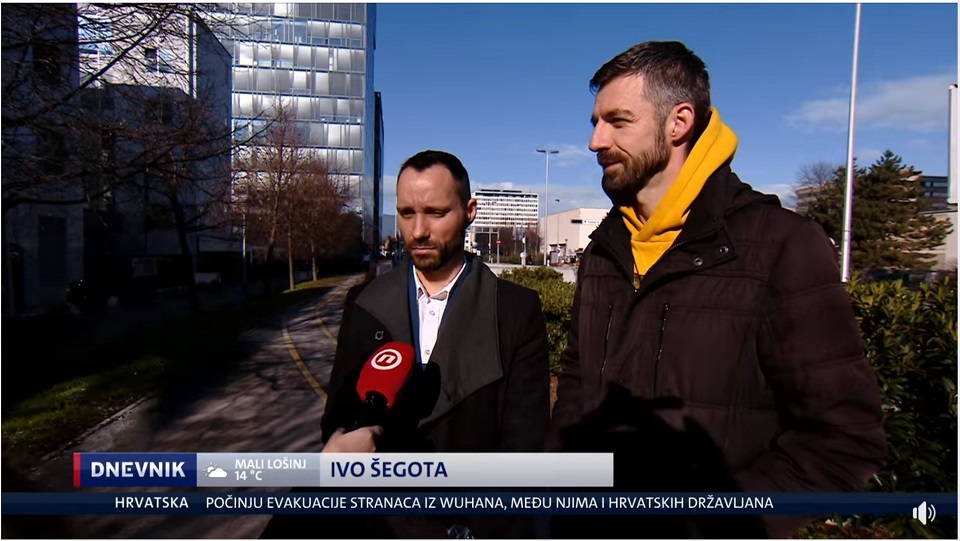
Gay Life Partners Ivo Šegota and Mladen Kožić in January after second foster care rejection. | Nova TV
Administrative Court Decision Did Not Influence Constitutional Court Decision
“The Constitutional Court has been reviewing this law for several months and the decision of the Administrative Court in no way influenced the decision of the Constitutional Court. But we have indicated that courts and administrative bodies are obliged to act in accordance with the Constitution and international regulations and must interpret laws so that no social group is discriminated against,” added Šeparović.
Regarding the Kožić-Šegota case, he pointed out that the Social Welfare Center should have acted on the decision of the Administrative Court which allowed the couple to be foster parents without this Constitutional Court decision. However, the Constitutional Court decision further obligates them to honor the lower court’s decision, and notes that this same-sex couple must not be discriminated against and that they can be foster parents on the same terms as anyone else who meets the legal requirements.
Ivo Šegota and Mladen Kožić, who are gay life partners, applied to the Social Welfare Center to become foster parents three years ago. After rejecting their application, the center explained that the couple cannot foster children because the law does not allow them to do so as life partners. Last December, the Administrative Court handed down a historic verdict which stated that life partners could be foster parents. However, their request was rejected again by the Social Welfare Center in January.
The President of the Constitutional Court recalls that, under the Constitutional Act of the Constitutional Court, Constitutional decisions must be enforced, and the government is obliged to ensure compliance.
“The point of this decision is that opportunity to provide foster care service must be given to everyone under the same conditions, regardless of whether the potential foster parents are of same-sex orientation. This does not mean that they are privileged, but their foster care must be allowed if they meet the legal requirements,” explained Šeparović.
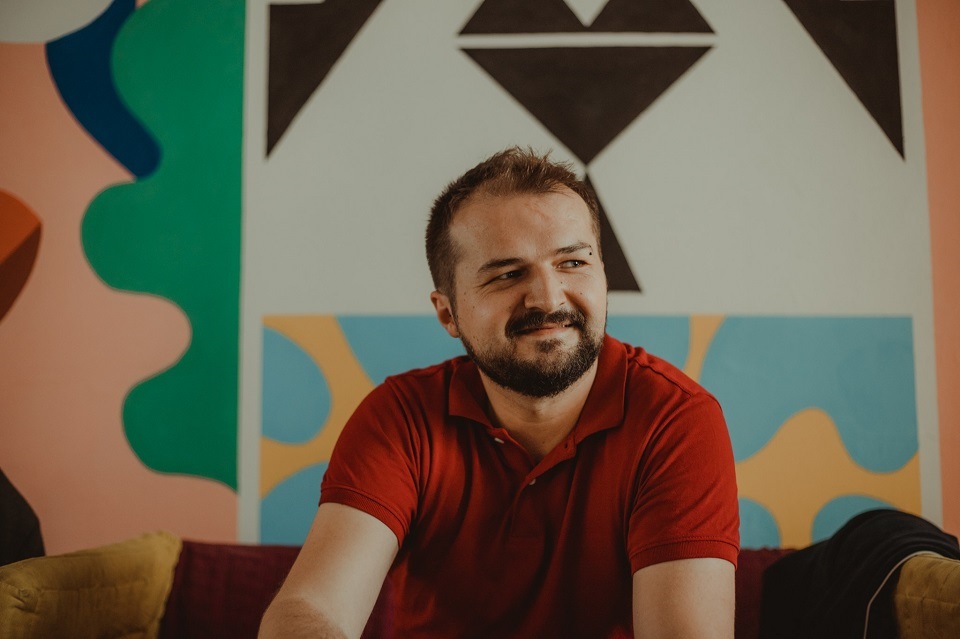
Daniel Martinović | Coordinator for Dugine obitelji (Rainbow Families)
Dugine Obitelji (Rainbow Families) Official Statement
Daniel Martinović, Coordinator at Dugine obitelji (Rainbow Families), released the following statement:
“Today's Constitutional Court decision states that the Foster Care Act must be interpreted to include life partners as equals as other foster parents, and that this is the only correct interpretation of the act.”
“The decision recognizes and prevents discrimination against life partners in the future and does what politicians in Croatia have not accomplished for years. This is a positive leap forward for the equality for all citizens of the Republic of Croatia, regardless of their sexual orientation or gender identity.”
“The LGBT community has once again fought for its rights alone, persistently and together. Our courage and insistence on a fairer society can hopefully be a milestone for other marginalized groups in our society.”
Croatia Constitutional Court Decision Ends Three Year Court Battle
Information on the December 2019 court decision can be found here. Details about the Social Welfare Center’s January 2020 rejection of the couple’s second foster care application can be found here.
A history of the couple's efforts to become foster parents and information on the LGBT rights movement in Croatia can be found here.
To learn more about the efforts of Rainbow Families (Dugine obitelji), check out their website and Facebook page.
The Croatia Constitutional Court decision (in Croatian):
Odluka Ustavnog suda o udom... by Index.hr on Scribd
Croatia Gay Couple Foster Care Application Rejected: Court Decision Ignored
The Social Welfare Center in Zagreb again rejected the foster care application submitted by Ivo Šegota and Mladen Kožić, who are life partners in Croatia. By doing so, they have completely disregarded the Croatian Administrative Court's December 2019 binding judgment, which allowed the couple to become foster parents after a long two-year court battle.
UPDATE: Mladen Kožić and Ivo Šegota give interviews to RTL Direkt and HRT on January 28, 2020. More information here.
Couple Had Started Preparing Home for Children
“We're shocked. After the December verdict, we had started planning how we would prepare our home for children, and I had already announced to my boss that, as soon as children arrived, I would be taking a long-term unpaid leave. And then a decision from the center arrives stating that they will not respect the court's decision. For the first half hour I kept saying, "But how is this possible?" And then I reminded myself that this is another small obstacle that Ivo and I will have to overcome together. We’ll go forward patiently and continue learning and developing our parenting skills. Giving up is not an option,” said Mladen Kožić. He added that he will appeal this unexpected decision, which came with an even more unexpected explanation, with his partner. In fact, the decision literally states that "this body could not arrive at a decision that is based on the application of legal provisions but is based on the opinion of the court."
Šegota and Kožić applied to the center in 2017 with to become foster parents. The center began the procedure, the partners passed the required screening tests and received a positive assessment, which was followed by compulsory education for foster parents and obtained their license. But instead, the center suddenly informed them that "there are no legal prerequisites for initiating the licensing process because they are in a life partnership," and life partners are not expressly listed in the Foster Care Act as possible foster parents. However, singles, spouses and extra-marital partners are listed, as reported by Kristina Turčin/Jutarnji List on January 28, 2020. They couple submitted a complaint to the ministry, which confirmed the center’s decision, and then they initiated an administrative procedure.
Croatia Court December Decision: Couple Can Become Foster Parents
At the end of December, the Croatia Administrative Court issued a judgment that could no longer be appealed, annulling the earlier rulings, and returns the case to retrial. However, the judgment was more than clear. Total Croatia News reported this court decision on December 20, 2019.
“By a meaningful interpretation of the legal provisions in their interconnectedness, the foster family, in the court's view, may include the foster parent and his or her life partner. The legislator did not prescribe a specific sexual orientation anywhere, so it is not logical that a single person having the same sexual orientation as the plaintiffs would be issued a foster care license if he/she fulfills the legal requirements. In this case, the legal requirements (for providing foster care) were not even examined in case of the plaintiffs because of the belief that life partners cannot be foster parents,” the Croatia court ruling read.
“As the respondent deems that the defendant applied an exclusively formalistic or grammatical interpretation of the relevant provisions of the foster care law, without interconnecting them and interpreting them in accordance with their meaning and purpose; the first instance body (Social Welfare Center) will reopen the foster care application process and decide to grant permission solely on the merits of the plaintiff's request,” the judgment ordered.
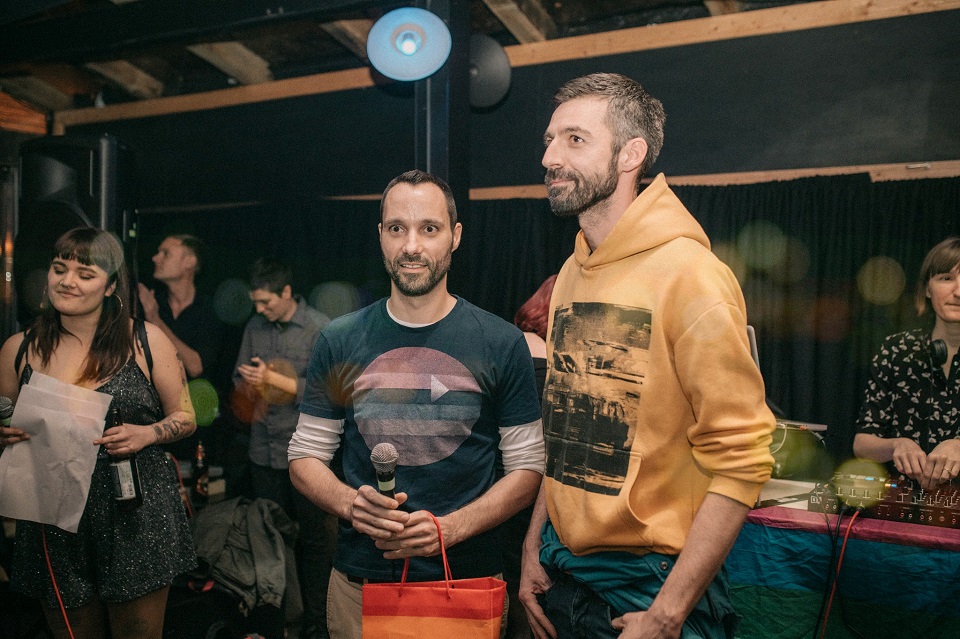
Ivo Šegota and Mladen Kožić | Facebook
Zagreb Social Welfare Center Denies Couple’s Application Again
However, the center issued the same decision as if there hadn’t been any judgments at all. Jutarnji List has not received an answer regarding the center’s decision because "CZSS (Social Welfare Center) Zagreb cannot provide details on proceedings in order to maintain official and professional secrets, respect the principles of secrecy, protect personal data and out of respect for privacy." The Ministry of Demography, Family, Youth and Social Policy would not comment and were surprised by Jutarnji List’s inquiry.
“Not only can we not comment on the decision of the center, but we are not aware of the fact that a new decision was made,” the ministry stated yesterday.
Zagreb Couple Must Appeal Decision Second Time
Šegota and Kožić must now go through the same procedure again, and an appeal of the center’s decision will be sent to the Croatia Ministry of Demography again.
“That's our next step. If the appeal is not upheld, we will return to the Administrative Court and ask that the court decide on its own and not return the proceedings to the beginning. These decisions by lower administrative bodies, which do not comply with binding judicial decisions, do not contribute to the rule of law. On the contrary, they insult the fundamental value of the constitutional order,” says lawyer Sanja Bezbradica Jelavić, who represents Šegota and Kožić.
“State institutions should adhere to court decisions,” says Gender Equality Ombudsperson Višnja Ljubičić.
Đuro Sessa: 'The decision of the center is not illegal, but it must have strong reasoning.'
The Zagreb Social Welfare Center may, in principle, issue the same decision that was reached previously since the court annulled that previous decision and sent the entire proceeding for reconsideration, explains Djuro Sessa, the Chief Justice of the Croatia Supreme Court.
“The court ruled that the case was going back for retrial. The court had the opportunity to resolve the issue on its own; not to seek a retrial but to replace the decision of the Social Welfare Center with its decision instead. The court could have decided to accept that the plaintiff's request, but they did not do so. Therefore, the center could arrive at the same decision, but the rationale for the decision should have been far more thorough,” Sessa adds.
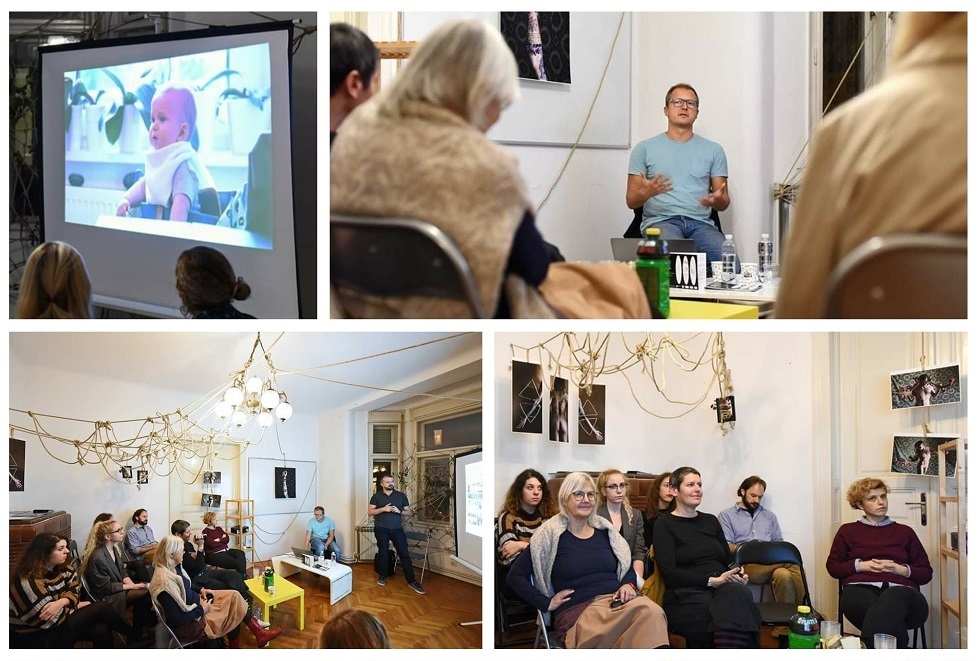
Rainbow Families | Facebook
Croatia Based 'Rainbow Families' Releases Statement
Rainbow Families (Dugine obitelji), which brings together LGBTI parents and those who wish to become parents in Croatia, released a statement today. It is printed below in full.
“It is unacceptable that the rule of law does not function in Croatia, which currently holds the EU Presidency and that court judgments are not respected.”
“The Administrative Court ruled in December 2019 that Ivo Šegota and Mladen Kožić, life partners who wish to become foster parents, have full rights in their intent. The ruling also indicated that they must not be discriminated against in these proceedings. The Social Welfare Center in Zagreb disregarded the court judgment and again rejected the foster application submitted by Mladen and Ivo. Rainbow Families, which brings together LGBTI parents and those who wish to become parents, consider the center’s actions outrageous. The center is acting as if the Administrative Court's judgment does not exist.”
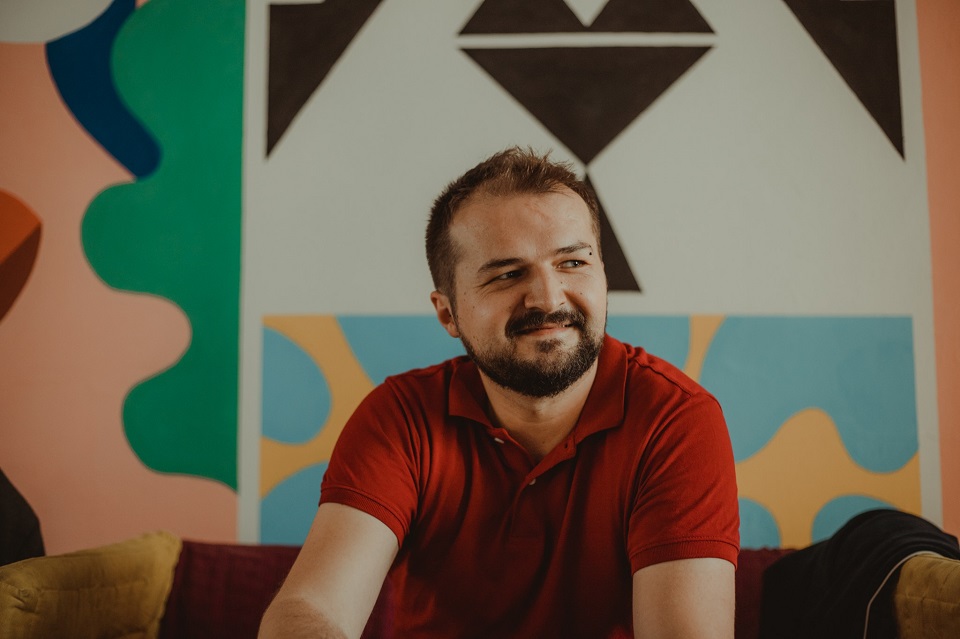
Daniel Martinović | Rainbow Families
“’This situation was already unbelievable, and it would be ridiculous if it weren’t so sad. The December 2019 decision of Administrative Court gave all of us, who believe in equality and respect for human rights, hope that there is a better future for our society. Since then, we have received an incredible number of messages of support regarding the December court verdict confirming our members, Ivo and Mladen, have the right to become foster parents. People have been stopping them on the road and congratulating them. And now we must witness this reckless, unthinkable, and more importantly, illegal conduct of the Social Welfare Center. What would the Social Welfare Center look like if it ignored the court's decision, for example, and allowed an abusive parent access or information about a child?’” Daniel Martinović, coordinator of Rainbow Families, pointed out.
"Our politicians are constantly heaping praise on our country simply because it currently holds the Presidency of the Council of the European Union. We are also told repeatedly about what a great honor it is for all of us, how proud we can all be of Croatia, how it is proof that we stand side by side with other EU countries. It hasn’t not even been a month since that famous presidency began, and we already have countless examples of where that all falls into the water. We consider this the worst example so far because it shows that institutions in this country do not respect the rule of law or court judgments, which is unthinkable in countries like Germany, Belgium or France."
"Life partners Ivo and Mladen will appeal to the Croatia Ministry of Demography regarding the center’s decision. If the ministry does not accept that appeal, they will go back to the Administrative Court and ask the court to make its own decision. Judging by the first ruling of the Administrative Court, they are fully entitled to become potential foster parents, and legal experts are already warning of the problematic situation the center's decision (last week) will create."
"Basically, in the first decision, the center rejected Mladen and Ivo’s application. However, they did not correctly apply the legal provisions of the Republic of Croatia, and when they were corrected by the relevant court, which rendered a binding decision, they interpreted the court's judgment as 'an opinion' which is not binding, and thus refused to correct their own misinterpretation of the law."
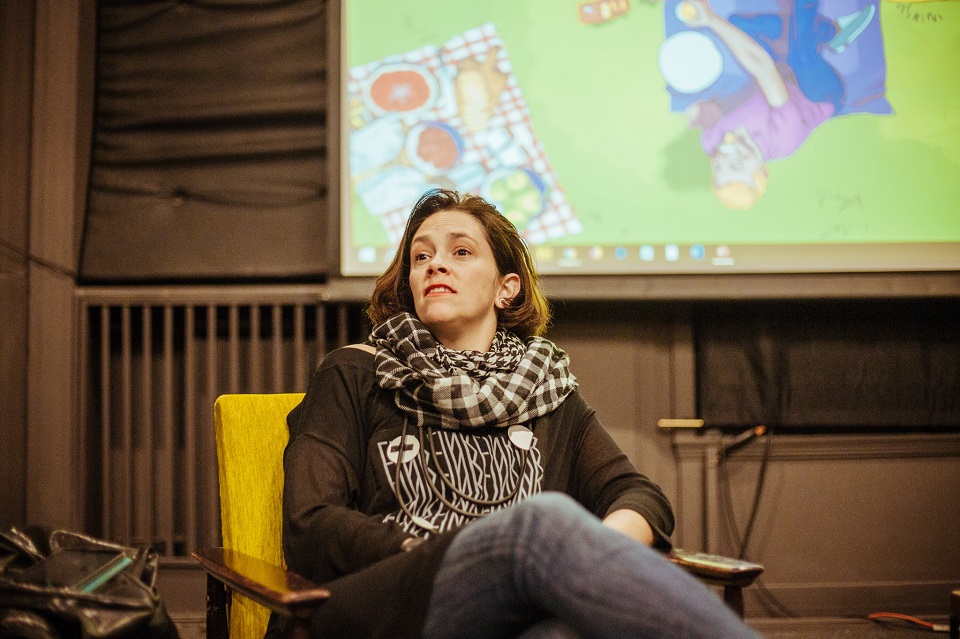
Zrinka Bojanić | Rainbow Families
"'The center’s disregard for the ruling of the Administrative Court causes great legal uncertainty and is harmful LGBTI citizens who are protected by several Croatian laws and European case laws. The judgment clearly instructed the center to decide on the merits of the plaintiffs' request, but they rejected that request, which is contrary to the judgment. They have demonstrated that they do not want to act on the couple’s request to become foster parents, which they submitted back in 2017. If this case is brought before the European Court of Human Rights, there is a very good chance that Croatia will again be forced to respect all its citizens equally and grant them equal rights on equal terms,'" explained attorney Zrinka Bojanić, an associate of Rainbow Families.
Mladen Kožić and Ivo Šegota | Press Conference | December 21, 2019
A history of the couple's efforts to become foster parents and information on the LGBT rights movement in Croatia can be found here.
UPDATE: Mladen Kožić and Ivo Šegota give interviews to RTL Direkt and HRT on January 28, 2020. More information here.
First Transgender March Held in Croatian Capital of Zagreb
Zagreb draws people from across the country and the wider region to march in the name of transgender rights.
The Republic of Croatia is known as a conservative country, and while there are people of all backgrounds, ethnicities and religious beliefs (or none whatsoever) living in Croatia, the dominant religion is Catholicism. Most people in Croatia identify as Catholic if asked, even if they don't actively practice the religion or attend church regularly, or at all.
Gay pride has become somewhat of a staple in some of Croatia's larger cities, including the capital of Zagreb, Split, and in the typically much less conservative Rijeka along the northern Adriatic coast. While gay pride parades generally pass by without many incidents, Croatia still has a long way to go before such parades are as accepted as they are in other European capitals such as London or Berlin.
What of those who are transgender, you might ask? As france24 writes on the 30th of March, 2019, Croatia hosted its very first transgender march yesterday, which attracted approximately 300 people from Croatia and the wider region to Zagreb to march in an attempt to draw attention to the discrimination they feel they face in what is a largely, but not entirely, conservative part of Europe.
Those marching were accompanied by special police as they marched through the streets of the capital on the warm, sunny spring day this weekend, blowing whistles and brandishing signs and banners attesting to their struggle within society.
The organisers of the Zagreb march spoke about the concerning rise of ''right-wing groups'', even going as far as to refer to such groups as ''fascists'' who seek to focus their ''attacks on marginalised people'' which they claim include women, migrants and transgender individuals. They claimed that the march encompassed not only trans rights but desired to draw attention to ''all forms of oppression,'' according to a statement from the organisers.
Since its accession to the European Union back in 2013, Croatia has seen the gradual liberalisation of gay rights, and homosexual couples have been perfectly free to register themselves as life partners, just like unmarried heterosexual couples, since the year 2014. That law afforded them the same rights which were already enjoyed by homosexual couples who are legally married, which include matters involving property, tax, health and social insurance, and various other things.
In spite of Croatia's numerous steps forward, which have picked up their pace quite significantly since the country's accession to the political-economic bloc, issues still remain for people seen as as marginalised, which includes both gay and transgender people.
A trans activist from the Slovenian capital of Ljubljana stated that solidarity is key, and that the march was an emotional one as it saw all of the people from across the region, which like to fight with each other at the best of times, coming together in Zagreb in the name of such an important matter.
Make sure to follow our dedicated lifestyle and politics pages for much more. If it's just the capital you're interested in, give Total Zagreb a follow.
One Voice Festival to be Held in Zagreb
On April 21st, 2018, a festival of activist choirs called "One Voice Festival" will take place at &TD Theater in the Student Center in Zagreb.


